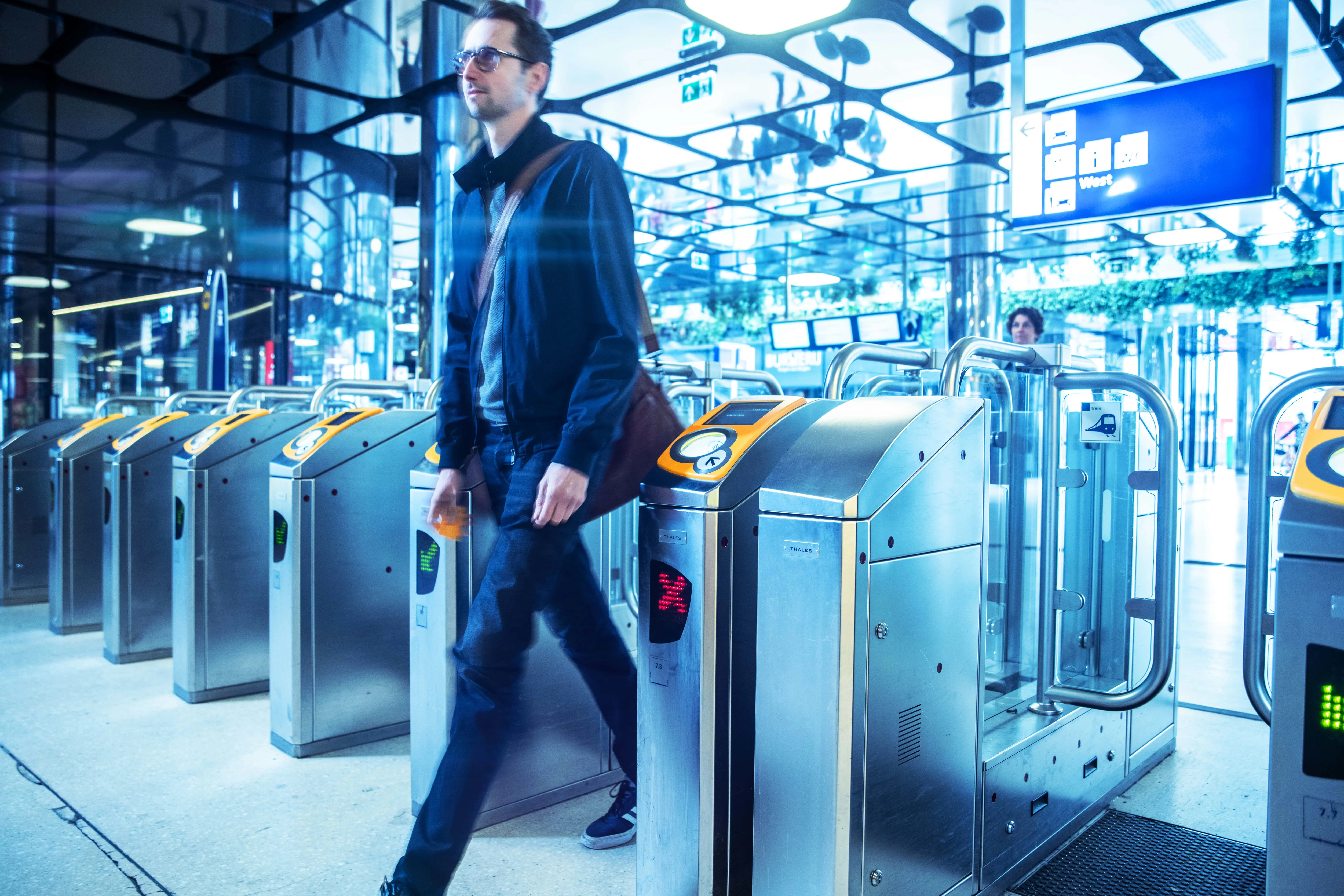AI analyzes historical travel data and preferences to offer tailored ticket options. This can help passengers choose the fastest route, the most affordable fare or the most convenient schedule based on their needs.
In an interview, we discuss with Viet Le Trung, Head of Digital Engineering at Hitachi Rail, about innovative AI-driven projects his team is developing in the ticketing space. Viet highlights the importance of data and artificial intelligence in transforming the passenger experience and enabling seamless, personalized mobility.
What are the major technology trends shaping the ticketing sector?
The ticketing sector is undergoing a rapid digital transformation. The industry is transitioning away from paper tickets, embracing QR codes, mobile passes and other digital tools. Artificial Intelligence (AI) is a major enabler of this evolution, reshaping how passengers interact with ticketing systems and how operators manage access.
Key trends include hands-free ticketing—where passengers can walk through gates with minimal interaction—Bluetooth and ultra-wideband technologies, facial recognition, and biometrics. These innovations not only improve user convenience but also streamline operations and enhance security.
Can you share some of the AI-related projects you are working on in the ticketing space?
We are actively working on several AI-powered projects that aim to improve both operational efficiency and passenger experience.
One major initiative involves smart passage logic using computer vision. Instead of relying on traditional sensors to detect entry, we use cameras integrated with AI models to identify and classify people or objects, as they pass through the gate. This approach enables us to adapt to evolving use cases by simply updating the software, eliminating the need for costly hardware changes.
Another important project focuses on passenger journey analytics. Using AI, we analyze behavioral patterns to detect anomalies and identify areas for improvement. For instance, if a specific gate sees a steady flow of passengers regardless of the time of day, that may signal an operational inefficiency. By detecting such inputs, we help transport operators optimize resources and improve service delivery.
These insights also help us to provide tailored recommendation, for example, identifying a station where more passengers exit than enter during a given time, or highlighting underused gates to balance flow. AI allows us to turn data into actionable knowledge.
Data today has a key role. What other deployments are possible thanks to data?
Data plays a central role in predictive maintenance. By applying AI to monitor the condition of gate equipment, we can anticipate failures and schedule maintenance proactively. For example, we track components like the Interruptor Power Supply (IPS) and analyze historical data to forecast potential issues. This reduces downtime and improves equipment lifespan, moving from a reactive to a preventive maintenance model.

How is AI used to enhance the passenger experience in ticketing systems?
AI enhances the passenger experience in several meaningful ways, as listed below. These enhancements can be integrated into mobile apps or ticket vending machines, ensuring a seamless experience from planning to travel.
01
Personalized Ticketing
02
Passenger Guidance
By forecasting crowd density and traffic flows, AI can provide real-time journey recommendations. For example, a passenger might receive a mobile notification suggesting the optimal gate to use or the best time to travel to avoid congestion.
03
Inclusion & Accessibility
The systems can also offer inclusive recommendations, such as identifying the most suitable gates for passengers using wheelchairs, trolleys, or traveling with young children.
In what ways can transport operators benefit from integrating AI into ticketing solutions?
For operators, AI provides significant operational and strategic advantages, outlined below. By leveraging data and forecasting tools, operators can make smarter, more informed decisions that lead to better resource allocation and improved customer satisfaction.
01
Optimizing Gate Management
AI helps balance entry and exit flows, particularly during peak hours, by recommending dynamic gate allocation.
02
Demand-Based Incentives
Using predictive analytics, operators can simulate passenger flow and offer incentives such as off-peak discounts.
03
Passenger Segmentation
AI can identify demographic patterns (e.g., seniors, students, children) and suggest fare adjustments or service changes accordingly.

What are the main challenges you face when deploying AI in the ticketing environment?
One of the biggest challenges is data acquisition and quality. Data comes from various sources and must be cleaned, processed, and harmonized. Ensuring data privacy and compliance is equally critical—we must manage sensitive data securely and in accordance with local regulations.
Another challenge is the dynamic nature of passenger behavior. AI models must be flexible and scalable to adapt to changing patterns, especially in areas like fraud detection.
Lastly, integrating AI into real-world environments requires close collaboration with transport operators. While we bring technical expertise, understanding the operational context and passenger behavior is key to delivering true value.
What role does data play in driving innovation in ticketing?
Data is the foundation of innovation in ticketing. AI relies on historical and real-time data to learn, predict, and recommend. But the data belongs to the customer—whether it's a public operator or government agency. That's why we see co-innovation as essential. We explore the data together with our clients, develop insights collaboratively, and tailor solutions to their specific needs.
How is data being leveraged responsibly?
We take data governance seriously. All projects follow strict compliance with privacy laws and industry standards. We always sign a Memorandum of Understanding (MOU) with our customers, outlining how data will be handled. We do not store or process personal data unless it is anonymized, and we require that any shared data is transformed before we receive it. Ensuring data security, transparency, and trust is fundamental to our work.
How does your team stay up to date with fast-moving AI developments?
Our data scientists and engineers regularly participate in advanced training and certifications to stay up to date with emerging technologies. We actively engage in industry events, exhibitions, and cross-sector collaborations.
Internally, we foster a culture of knowledge sharing, where teams discuss lessons learned, recent experiments and new ideas. This ongoing exchange allows us to remain agile and innovative.
What is your vision regarding AI in ticketing for the next years?
In the next 5 to 10 years, we envision a world where AI enables hyper-personalized travel experiences. Ticketing will not just be about access, but about providing intelligent recommendations tailored to individual preferences and real-time conditions.
AI will integrate multiple data sources—not just transport-related, but also urban data from smart cities—to offer a more holistic travel experience. Imagine receiving a journey plan that factors in weather, traffic, mobility needs and environmental impact.
There will also be a shift from physical gates to software-based access control, supported by technologies like ultra-wideband and autonomous systems. AI and generative tools will play a key role in continuously adapting services to new challenges and passenger behaviors.
In short, AI will become an invisible but powerful enabler of seamless, sustainable, and inclusive mobility.

